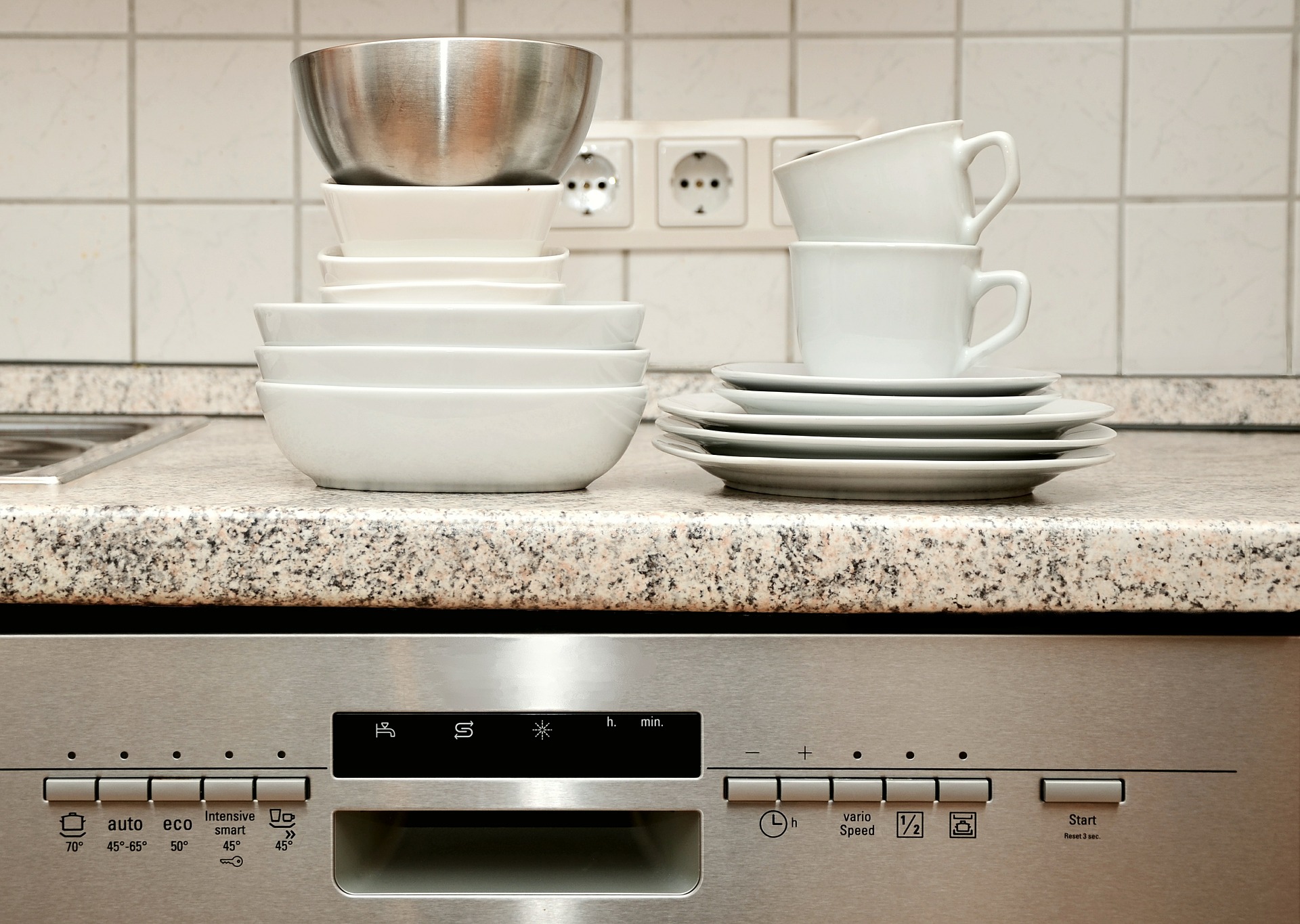To prevent grease build up in your kitchen sink in the first place, try not to pour liquid grease down the drain. Wipe congealed grease from pots and pans with a paper towel (don’t forget to dispose of in a rubbish bin).
Another preventative method of keeping your kitchen sink clear, is investing in a strainer to place over your drain, preventing any food scraps going down and clogging up your sink.
Your dishwasher requires slightly more maintenance to avoid those inconvenient blockages. We’ve got a couple of quick tips to make sure it always leaves your dishes nice and clean, every time.
Before you use your dishwasher, run your sink water until it is very hot. This ensures your first dishwasher cycle will be hot instead of cold water.
To maintain your dishwasher and avoid any blockages, we recommend cleaning the inside of your dishwasher once or twice a month, depending on how often you use it. The DIY fix is to pour a cup of white vinegar into the bottom of your empty dishwasher and run on a normal cycle or, if you would prefer, you can purchase any dishwasher cleaner from your local supermarket and simply follow the instructions on the packaging. Both of these options will eradicate odours and remove old food particles.
Then there are the seals around the gasket in your dishwasher and around the soap dispenser. These are notorious for collecting food particles and other things that make their way into the dishwasher. To clean these seals, use a hot soapy rag or dishcloth.
And if a little DIY drain cleaning doesn’t do the trick, don’t hesitate to contact us – we’re more than happy to pay your pesky sink / dishwasher a visit.

